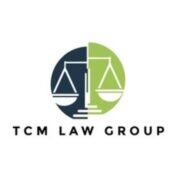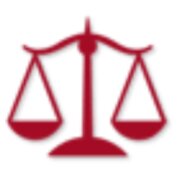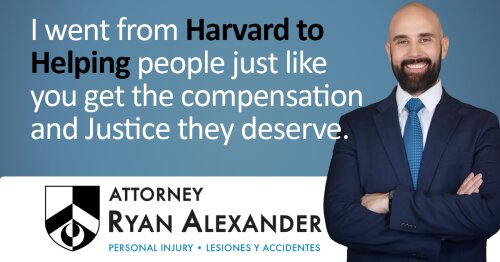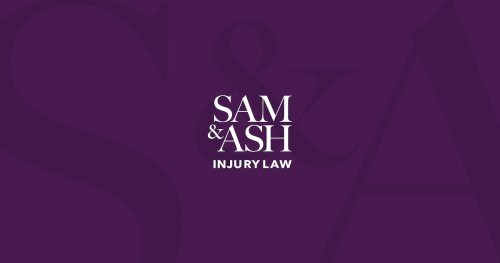Best Travel Accident Lawyers in Las Vegas
Share your needs with us, get contacted by law firms.
Free. Takes 2 min.
List of the best lawyers in Las Vegas, United States
About Travel Accident Law in Las Vegas, United States
Travel-accident law covers the legal issues that arise when someone is injured while traveling. In Las Vegas this includes a wide range of incidents - car collisions on the Strip or nearby highways, rideshare or taxi accidents, injuries on shuttle buses, tour-operator incidents, hotel and casino slip-and-falls, rental-car crashes, airline or airport accidents, and injuries on cruise or other maritime trips that begin or end in the area. Depending on the facts, claims can involve personal-injury law, insurance claims, contract and waiver disputes, federal rules for air and maritime travel, and special procedures for claims against government entities. The immediate legal issues are liability, insurance recovery, evidence preservation, medical cost coverage, and timing for filing claims.
Why You May Need a Lawyer
You may need a lawyer if your injuries are serious, the cause of the accident is disputed, more than one party may share fault, or an insurance company denies or undervalues your claim. A lawyer can help if you face complicated issues such as rideshare company insurance coverage, rental-car liability, claims against a tour operator or cruise line that raise federal maritime law concerns, or injuries on government-owned property that require special notice. Attorneys can gather and preserve evidence, manage communications with insurers, calculate damages including future medical needs and lost earnings, negotiate settlements, and file lawsuits before deadlines. A lawyer is also necessary if the case could involve wrongful death, catastrophic injury, or long-term disability where quick, strategic action affects recovery.
Local Laws Overview
Comparative-fault rules - Nevada follows a comparative-fault approach. If you are partly at fault, your recoverable damages are reduced by your percentage of fault. If your fault reaches a certain threshold, you may be barred from recovering at all. Because of this, establishing fault and minimizing exposure to blame are important.
Statute of limitations - For most personal-injury claims in Nevada the standard deadline to file a lawsuit is relatively short. Many injury claims must be brought within two years from the date of injury. There are exceptions and shorter deadlines for certain claims - for example, special notice or shortened timeframes often apply to claims against government agencies and some transportation carriers. Acting promptly preserves your rights.
Insurance requirements - Nevada requires drivers to carry minimum automobile liability insurance. Insurance coverage and policy language will guide who pays for medical bills and damages after a vehicle accident. Rideshare, taxi, and rental-car situations create layered coverage issues - responsibility can shift depending on whether the driver was logged into an app, carrying a passenger, or operating the vehicle for hire.
Premises liability - Property owners in Las Vegas take responsibility to maintain reasonably safe premises. Hotels, casinos, restaurants, and other high-traffic properties must address hazards such as wet floors, uneven surfaces, and inadequate lighting. Proving notice of a dangerous condition or that the owner failed to exercise reasonable care is central to these claims.
Federal preemption for air and maritime travel - Airline and many maritime claims involve federal law. Domestic airline accident claims may be influenced by federal regulatory schemes and investigation processes. Cruise and other maritime injuries often fall under federal maritime law, which can impose strict notice and filing requirements and change how liability and damages are calculated.
Claims against government entities - If the accident involves a government-owned vehicle or public transit, or occurred on government property, different notice procedures and shorter timetables may apply. You may need to file an administrative claim or notice before suing, and those deadlines can be brief.
Special rules - Certain claims may involve waivers, releases, indemnities, or arbitration clauses. Vacation packages, tour contracts, and ticket contracts sometimes limit or shift liability. These provisions deserve close review because they can affect your ability to sue or the venue for a claim.
Frequently Asked Questions
How long do I have to file a personal-injury lawsuit after a travel-related accident in Las Vegas?
For most personal-injury claims in Nevada the typical deadline to file a lawsuit is two years from the date of the injury. However, there are important exceptions and shorter deadlines for claims against government entities, some carriers, and certain contracts. Because timing varies by case, consult a lawyer promptly to protect your rights.
What should I do immediately after a travel accident?
First, get medical attention and follow medical advice. Call law enforcement so an official report exists. Gather and preserve evidence - photos of the scene, vehicle damage, visible injuries, and contact information for witnesses. Exchange insurance and contact details with other involved parties. Notify your insurer, but avoid giving recorded statements about fault without legal advice. Keep records of all medical bills, wage losses, and expenses.
Who pays if I am injured in an Uber or Lyft ride in Las Vegas?
Liability and insurance depend on specific facts - whether the driver was logged into the app, whether a passenger was in the vehicle, and the rideshare company policies in effect at that time. Coverage may come from the driver’s personal policy, the rideshare company’s contingent or primary policy, or both. Because the rules and coverages vary, contact a lawyer and report the claim to the rideshare company and insurers promptly.
What if I am injured in a rental car while visiting Las Vegas?
Liability usually rests with the at-fault driver and their insurance, but the rental company may be involved depending on the circumstances. Rental agreements and optional coverages, such as loss-damage waivers or supplemental liability protection, can affect the handling of claims. If you rented through a travel package, additional contractual terms may apply. Preserve the rental agreement and discuss the claim with an attorney and your insurer.
Can I sue a hotel or casino if I slip and fall on the Strip?
Yes, if the property owner knew or should have known about a dangerous condition and failed to take reasonable steps to fix it or warn guests, you may have a premises-liability claim. Proof of the hazard, notice to the property owner, and the owner’s failure to remedy the danger are important. Surveillance footage, incident reports, and witness statements can be critical evidence.
Are there special rules for airline or airport accidents?
Airline accidents and many airport-related claims can involve federal law and agencies. Investigations by federal bodies may occur, and federal rules can affect the process for claims. If your injury involves an airline or occurred on a commercial aircraft, consult an attorney experienced in aviation cases because procedural and jurisdictional issues can be complex.
What about injuries on cruise ships or other maritime travel?
Injuries on cruise ships or vessels are often governed by federal maritime law. There can be special notice requirements, contract terms in passenger tickets, and limits on where and when you can file suit. Maritime claims can be subject to statutes of limitations different from state rules. Seek legal help quickly to preserve time-sensitive rights.
Will my own auto policy pay for my medical bills after a travel accident?
Your policy may provide first-party medical coverage, personal-injury protection, or medical payments coverage depending on the policy language and whether Nevada law applies. If another driver is at fault, their liability insurer may also be responsible. Because policies differ, review your insurance or speak with an attorney to understand coverage options and how to file claims.
Should I accept a quick settlement offer from an insurance company?
Insurance companies often make early offers intended to close claims quickly and for less than full value. Before accepting any offer, make sure you understand the full extent of your medical needs, future care, lost income, and non-economic damages such as pain and suffering. Consult an attorney to evaluate offers and to negotiate fair compensation.
Do I need a Las Vegas lawyer, or can I hire someone from another state?
It is often helpful to work with a lawyer who is licensed in Nevada and familiar with local courts, judges, insurers, and procedural rules. A local attorney will understand Nevada-specific rules, local investigative resources, and transportation or tourism-industry practices in Las Vegas. Out-of-state attorneys may work in partnership with local counsel when appropriate.
Additional Resources
Nevada Division of Insurance - for questions or complaints about auto, travel, or rideshare insurance.
State Bar of Nevada - for lawyer referral services and information about finding a licensed Nevada attorney.
Las Vegas Metropolitan Police Department - for filing police reports and obtaining incident reports for local accidents.
Clark County Department of Aviation - for airport-specific concerns and information about facilities at McCarran International Airport.
Regional Transportation Commission of Southern Nevada - for issues involving local public transit and shuttle services.
National Transportation Safety Board and Federal Aviation Administration - for federal investigations and safety information related to aviation incidents.
United States Coast Guard - for maritime safety and incidents involving vessels.
Local legal aid and victim assistance organizations - for help with referrals, resources, and support for injured victims.
Next Steps
1. Prioritize health and safety. Seek immediate medical care and follow your provider’s instructions. Document all treatment and keep copies of medical records and bills.
2. Report the incident. Contact local law enforcement and request an accident or incident report. Notify your insurer promptly, but avoid long recorded statements about fault before talking with a lawyer.
3. Preserve evidence. Take photos of injuries, vehicles, the scene, and any hazardous conditions. Preserve receipts, tickets, rental agreements, boarding passes, and any contracts or waivers.
4. Collect witness information. Get names, phone numbers, and brief statements from anyone who saw the incident.
5. Keep a written log. Track symptoms, medical appointments, time missed from work, transportation costs, and other out-of-pocket expenses related to the injury.
6. Talk to a lawyer. Schedule a consultation with a Nevada attorney who has experience in travel-accident and personal-injury matters. Ask about contingency-fee arrangements, the attorney’s experience with similar cases, likely timelines, and the evidence you should gather.
7. Act quickly. Deadlines for notice and filing can be brief, especially for government, maritime, or aviation-related claims. Early legal involvement preserves options and helps protect your claim.
Disclaimer - This guide provides general information only and does not constitute legal advice. Laws and procedures change and facts vary by case. Consult a qualified Nevada attorney for advice about your specific situation.
Lawzana helps you find the best lawyers and law firms in Las Vegas through a curated and pre-screened list of qualified legal professionals. Our platform offers rankings and detailed profiles of attorneys and law firms, allowing you to compare based on practice areas, including Travel Accident, experience, and client feedback.
Each profile includes a description of the firm's areas of practice, client reviews, team members and partners, year of establishment, spoken languages, office locations, contact information, social media presence, and any published articles or resources. Most firms on our platform speak English and are experienced in both local and international legal matters.
Get a quote from top-rated law firms in Las Vegas, United States — quickly, securely, and without unnecessary hassle.
Disclaimer:
The information provided on this page is for general informational purposes only and does not constitute legal advice. While we strive to ensure the accuracy and relevance of the content, legal information may change over time, and interpretations of the law can vary. You should always consult with a qualified legal professional for advice specific to your situation.
We disclaim all liability for actions taken or not taken based on the content of this page. If you believe any information is incorrect or outdated, please contact us, and we will review and update it where appropriate.
















